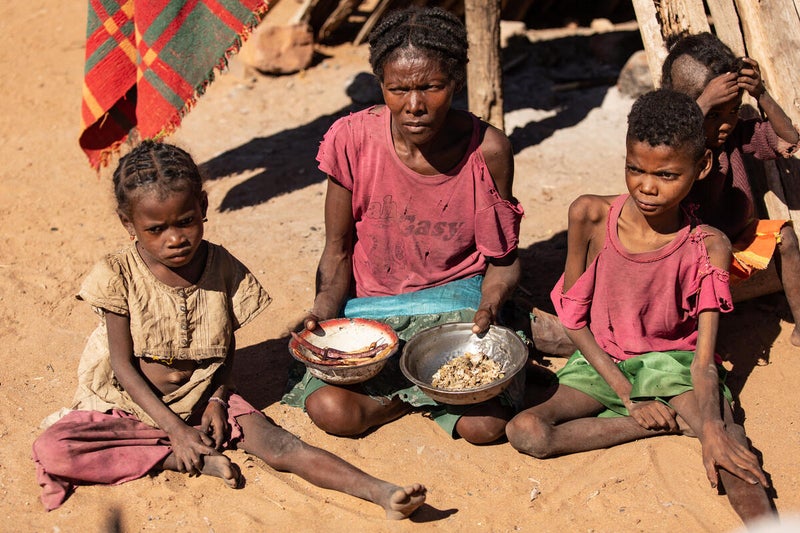Families forced to eat locusts as Madagascar famine deepens
Southern Madagascar is experiencing its worst drought in four decades thanks to the climate crisis
Children in Madagascar are forced to eat locusts and cactus leaves as the climate-led famine worsens.
The UN’s World Food Programme (WFP) estimates that 30,000 people in the island nation are enduring the highest internationally recognised level of food insecurity – level five – and the number will only grow over the coming months.
Southern Madagascar is experiencing its worst drought in four decades, forcing thousands of people to leave their homes in search of food, while those remaining have resorted to extreme coping measures for survival
Tamiry lives with her three children Torovelo, 12, Mbahomamy, six, and Manenjina, four, in Fandiova, one of the hardest-hit villages. To cope with extreme hunger, people are eating survival foods like locusts, cactus leaves, and a plant called ‘faux mimosa’ which is usually used to feed cattle.
She said: “In the morning, I prepare this plate of insects. I clean them up as best as I can given the near-total absence of water.
“It’s been eight months that my children and I have been eating this plant every day because we have nothing else to eat and no rain to allow us to harvest what we have sown.”

“Today we have absolutely nothing to eat except cactus leaves," added Bole, a mother of three.
She said her husband had recently died of hunger, as had a neighbour, leaving her with two more children to feed.
"What can I say? Our life is all about looking for cactus leaves, again and again, to survive."
WFP says it urgently needs US$78.6 million to provide life-saving food in southern Madagascar during the next lean season from September 2021 to March 2022.
"These are famine-like conditions and they’re being driven by climate not conflict," said the WFP’s Shelley Thakral.
"This is unprecedented. These people have done nothing to contribute to climate change. They don’t burn fossil fuels… and yet they are bearing the brunt of climate change.”
Join our commenting forum
Join thought-provoking conversations, follow other Independent readers and see their replies
Comments
Bookmark popover
Removed from bookmarks